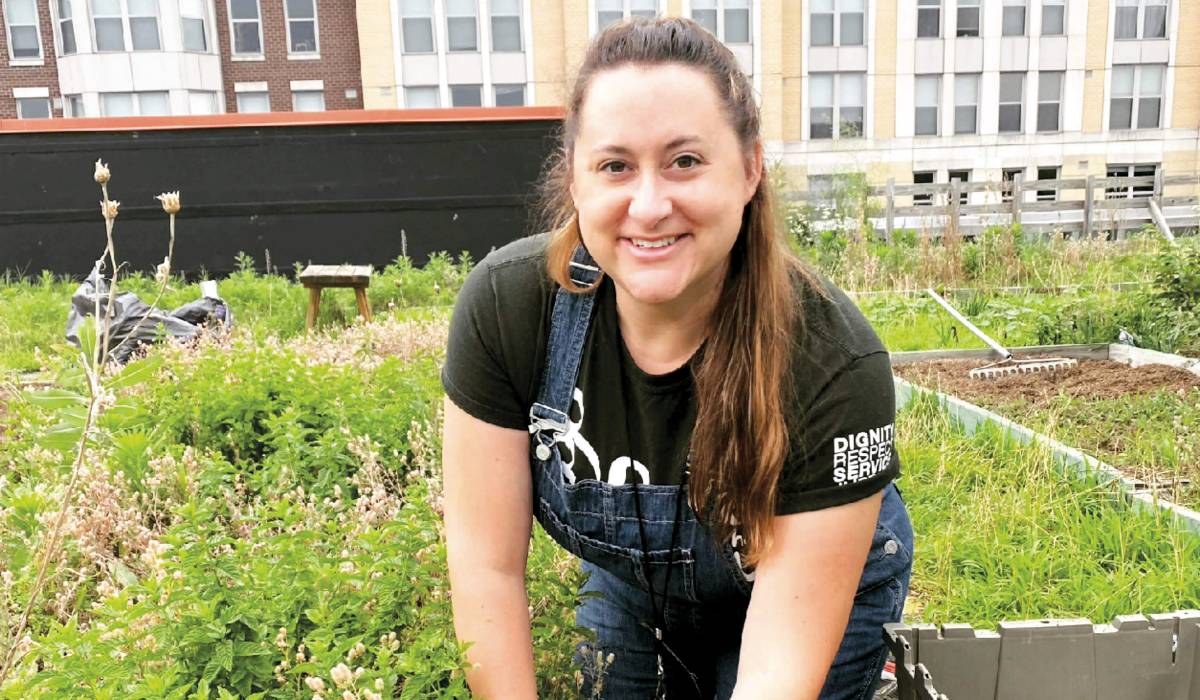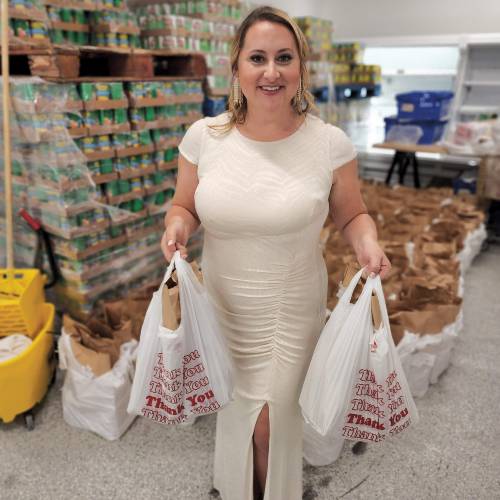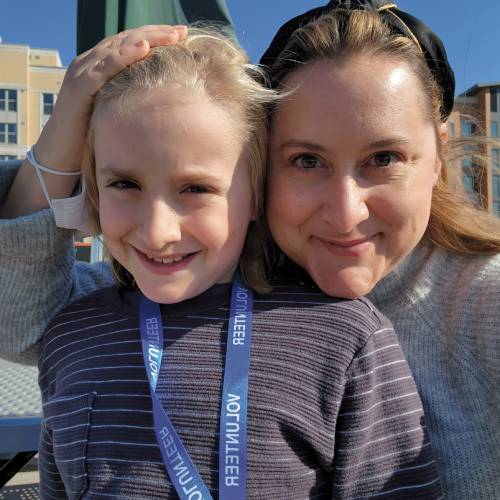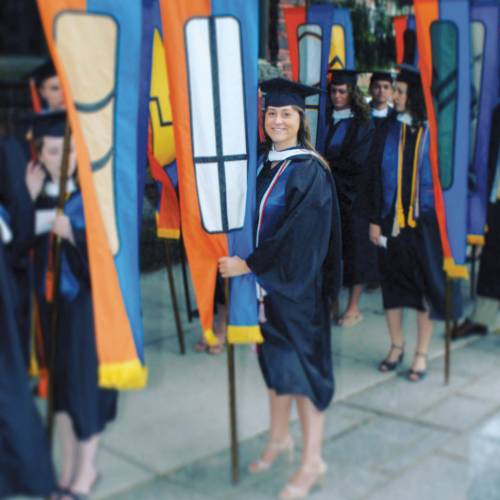
Working in her community comes naturally to Ashley Domm ’07—it’s in her blood. Following in the footsteps of her parents and grandparents, for whom community service was central to their personal and professional pursuits, Domm’s dedication to helping others attracted her to Gettysburg College and her vocation. Each fall, as Thanksgiving nears, Domm’s college memories converge with her current role.
“The organization I work for takes on fresh excitement every November because we give away 12,000 or more turkeys every year at Thanksgiving,” said Domm, who is head of advancement and chief development officer at Bread for the City, the largest food pantry and wraparound direct service nonprofit in Washington, D.C. “This always reminds me of one of my favorite memories at Gettysburg, which was the yearly Thanksgiving dinner at Servo. It was so special to be with all your friends and served this amazing meal by staff and professors. I remember my first year really feeling like an adult for the first time, and those Thanksgivings are some of my most cherished memories.”
This tradition remains an ongoing part of Domm’s life; she and many of her college classmates still get together every year for a potluck meal. They also go on an annual camping trip to Gettysburg, bringing their spouses and children, which is especially exciting for her son, who is a Civil War buff. Domm’s Gettysburg roots run deep, and she credits her student experience with helping to shape her desire to make a difference in the world.
“Gettysburg has such a beautiful focus on public service and community-building. Students don’t just go to their classes and go back to the dorms; there’s a real commitment to being a part of the vibrant community on campus and off. I knew very few people who weren’t involved in something beyond their day-to-day classes, whether that was sports, music, affinity groups, or community volunteering,” said Domm, who, in addition to double majoring in history and German, worked in Special Collections in Musselman Library, created themed houses with the Office of Residential and First-Year Programs, babysat professors’ children, attended church in town, and waitressed at the famed local restaurant, Mamma Ventura.
“Gettysburg has such a beautiful focus on public service and community-building. Students don’t just go to their classes and go back to the dorms; there’s a real commitment to being a part of the vibrant community on campus and off.”
While you might not immediately associate her degrees with the foundation for a career in nonprofit development and communications, Domm credits Gettysburg’s liberal arts and sciences education as the ideal blend of disciplines.
“I tell people all the time that a history degree is such a strong background for public service work,” she said. “What you’re learning is how to take in a lot of information, analyze that information, and then communicate that out. Synthesizing really big ideas and strong communication is the backbone of what I do at Bread for the City, and Gettysburg prepared me well for that.”
Domm has been a critical leader at Bread for the City for the past five years, raising funds to keep its doors open, running its volunteer program, leading external communications and media relations, and helping shepherd the community through COVID-19. The pandemic was an especially challenging time for federally qualified health centers like Bread for the City, and Domm and her team got creative to ensure they stretched every dollar to meet that need.



Before working at Bread for the City, Domm worked in development at Georgetown University. While she enjoyed it, the 2016 presidential election sparked a desire in her to get more civically involved and connect more to the community, especially in “hyper-local progressive spaces.” Bread for the City stood out to her because, in addition to other wraparound programs, the organization focuses on two areas of work that she feels passionate about: food insecurity and legal support for domestic violence victims. Bread for the City also provides clothing, medical care, and social services to reduce the burden of poverty in the Washington community. For Domm, pursuing a life of consequence is about the impact you can make as an individual.
“When you’re young and in college or just graduating, it can feel overwhelming to think about what impact you can have in this world as only one person, but there are so many different ways that an individual can make a powerful impact and difference,” Domm explained. “As you grow in your career and life, there will be even more opportunities to help others. That doesn’t mean you have to explicitly choose to go into public service, but it can mean mentoring others in your career field or volunteering in your community. That creates a ripple effect”.
by Katelyn Silva
Posted: 02/21/25